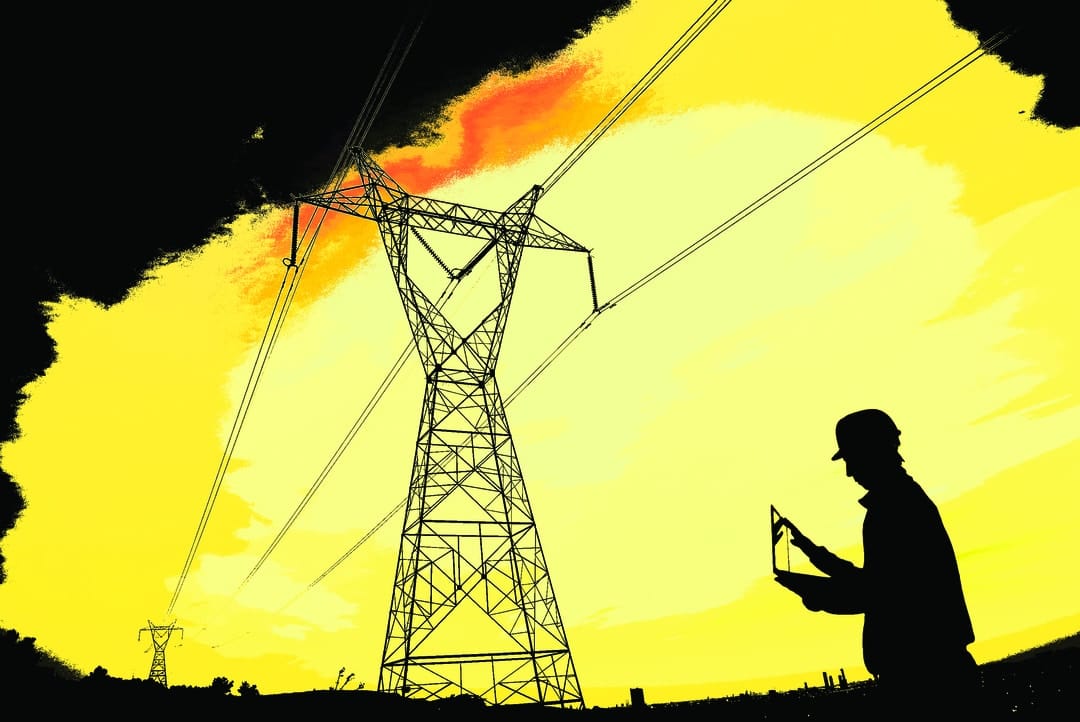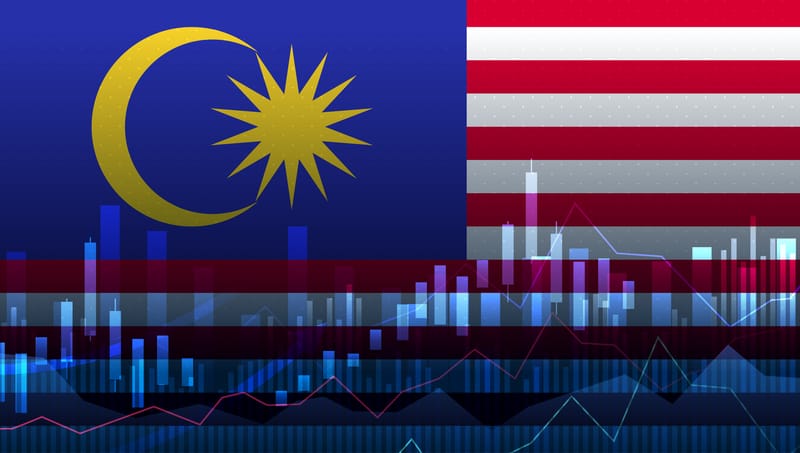
We're discussing the topic of renewable energy in the next three episodes of the What Happens Next? podcast.
Energy remains front and centre of political debate, a divisive issue among those who want to see a swifter transition away from fossil fuels and end the use of coal-fired power, and those who don’t believe such a transition is necessary, or viable, due to potential economic impacts.
Renewables have long been touted as the solution to reducing our reliance on fossil fuels, and in Australia renewable energy is growing at a per-capita rate 10 times faster than the world average – nearly three times faster than the next fastest country, Germany. So why haven’t renewables taken over yet? Our experts explain that the reason isn’t technical or economic, and the pure lack of political will to change could lead to unmitigated disaster.
Paul Raschky is an economist specialising in insurance. The industry is already planning for situations in which parts of the world might become unliveable due to global temperature rises increasing natural disasters and catastrophic weather events. Liam Smith is a behaviour-change expert who fears we’ve missed the window for the move to renewables that scientists say is needed to limit global temperature rises to 2 degrees Celsius.
Transcript
Susan Carland (SC): This time on the podcast we’re looking at renewable energy. Energy remains front and centre of political debate. It divides those who want a faster transition away from fossil fuels and those who say the transition is not viable due to economic impacts, Renewables have long been touted as the solution to reducing our reliance on fossil fuels. And in Australia, renewable energy is growing at a per capita rate 10 times faster than the world average, nearly three times faster than the next fastest country, Germany. So, why haven't renewables taken over yet? We'll find out from experts what happens if we don't make the switch to renewables and the potential difference if we do.
What happens if we don't move to renewables and phase out fossil fuels fast enough? Our experts fear the failure to keep global warming under two degrees could lead to large populated areas becoming uninhabitable. If we delay the move to renewables, we won't see the behavior change we need in communities, says behavioural scientist Liam Smith.
Liam Smith (LS): I’m Liam Smith, I'm the Director of BehaviourWorks Australia. BehaviourWorks Australia is an applied behaviour change research unit working with government and private enterprises to change behaviour for individual or social good.
SC: Liam Smith. Welcome.
LS: Great to be here.
SC: I want to ask you about renewable systems. How reliable are they actually? Can we trust them?
LS: We know that they're becoming more and more reliable, that they're becoming a greater and greater part of the grid, some technologies are more reliable than others and some countries indeed have situations where almost 100 per cent, even more than 100 per cent, of the national needs is supplied through renewables, at times, not all the time. So I think that question is gradually being answered by people with probably greater technical expertise than I have, but that certainly we're heading down that path to the point where they are more going to be much more reliable than they have been in the past.
SC: And since they are pretty reliable at the moment, then, by the sound of it - like you said, there are some countries that have, you know, use it for 100% of it needs at least some of the time. Why, in Australia, don’t we use it more? Why do you think there is still reluctance?
LS: That’s a complicated question. I would probably, I guess, add a few strings to the answer, or a few reasons. The first, I think, is some incumbency in existing systems. So you know, we build power stations, they are designed to last several decades, but they are large investments. It takes, certainly, technical capability and skill that goes into running them. And therefore we’re kind of locked in, path-dependent on the technology.
There's probably some hesitancy to the uptake of renewables because of stories around their reliability, I guess. Increasingly, in Australia, we're getting more and more used to solar and solar is one of those renewables that is quite variable, depending on the amount of sun and the weather and, indeed, where you are in Australia. And so I think probably a combination of those two things at the macro level are the drivers. But we are seeing people shift. So while they historically, have been key drivers to resistance, I think these things are changing.
SC: And yet - as you say these things are changing and look, there are some legitimate questions to be asked. But there are countries that are far further down the road than we are. If are we dragging our feet? Do renewables just need better PR? What's the issue?
LS: Probably. I think renewables certainly could benefit from better PR and a better reputation amongst Australians. There are probably some other reasons beyond that. I mean, I think when you say other, some, countries have embraced it much more wholly, that's probably a combination of the policy but may also be for very pragmatic reasons such as connection to a much larger grids or indeed, a much greater proportion of nuclear energy supply in those systems, which is not traditionally a large part of the mix in Australia. So why are we dragging our feet? It’s a difficult question to answer. I mean, I know that some authors have looked at Australia and say, ‘wow, look at all that space and all that sun, you could be an export country to the world’, and we certainly aren't really, so there's certainly a possibility. But I get back to the early questioning and incumbency and also some level of resistance.
SC: Do you think if Australia does move towards more renewables, maybe gas and other technologies? What does that mean for the future?
LS: So I’m a behavioural scientist and I guess the reason I'm talking to you is because largely we speak in, we deal in applied contexts and energy being one of those. So I often think about what does the future look like behaviourally in a world where we have a much greater proportion of renewables, that may not have the base load supply that, say, coal does. And so I do think the future - and you know, there are certainly many options in the future and hydro, hydrogen has certainly been one that has got the attention of government into the near future - there are ways in which the future may lead to changes in how we act and how we engage with a system, I guess, at one level, if we could have a better connected grid in that that allows exchange of energy between grids I think that that's really gonna be helpful in distributing the risk or the supply across broader networks. But that also means that people might need to behave differently at times. And I think about the Monash work that we're doing in our local, in the net zero work we're doing in particular heading towards a target of net zero and that's at both the micro level, so there’s a Monash microgrid, but there’s also a Monash Network, which where we hope to be able to manipulate our power use, at times - as in users of power - so that we can feed in or out of a broader grid as needed. And I think that's an area where things are really gonna change. So I can see in the future times when we might need to, for example, turn the heating up because we can't keep the place cool - and when I mean heating up I mean not from 25 to 30 but more 25 to 26, 27, or something like that, just to create a little bit of flexibility in a system when we're drawing a lot from it and equally if were producing a lot of power, however, that looks, and in Monash’s case there is solar and battery and wind in that mix, but certainly when we're producing more power then we can export it. And we might either say let’s put some energy into battery storage for the time being, or we can export it to other grids and they can have a change in their behaviour, in terms of ‘use your energy now, recharge your batteries now whether that’s in the car or somewhere else, or in your home - home batteries are becoming increasingly popular as well - these are things that I can see behaviour really changing in the future. So will be, hopefully much more connected, we'll see, particularly assets like home batteries, things like the Tesla2 or, indeed, car batteries, will become a resource that is drawn down and feeding back into the grid as needed quite regularly. So they will provide that security and that reliability. So that means you and I are doing a few things differently, probably. When this energy, we might use it or store it, and when when it's less, or not then, then we might need to accept a few things that are different as well.
SC: You told us what could happen if, you know, how the future could look, if we make some changes. What could our future look like if we don’t? If we don’t start adopting renewables?
LS: Yeah, well it’s kind of like the climate science argument really. The one argument is that Australia is a contributor. We’re not a huge contributor, but per capita we are a very large contributor to carbon emissions, etcetera, and that is leading to global change and causing at the very least a 1.5 or two degree change in earth temperature and we know what that means.
So, I mean, if we continue to contribute to that, which is not great, I guess there's a reputational image as well in that Australia looks very much like a laggard, it is behind the eight ball in terms of the uptake of new smart grids and technology that allow exchange of energy in the way we have been talking about and very much others get ahead. Both, I guess it’s through the technology, but then equally through their economies, probably start to prosper much more as well. So I think, particularly, it's the reputational risk, I think is worrying in the short term, but then longer terms there’s the climate and certainly a whole bunch of others as well.
SC: Do you think there are any areas more than others, where, if we don't make change, environmentally or in a renewable sense, things could be worse than others? Like is that the biggest area for renewable focus, for example, say, stopping coal? As opposed to anything else, we should just focus on that, because if we don't the path that we're going down is just too negative?
LS: The shutting of coal stations sends really important messages to the community, to people, about what matters. And so when we see a power station closed down and we see companies saying ‘right, we are divesting out of coal’, I think that creates the momentum. In many ways we’ve had great momentum, not necessarily for the right reasons, on the back of the bushfires. At the moment other factors are completely changing that, unfortunately, for so many reasons, with Covid, but certainly if Covid hadn't happened, it's almost certain that there would be a really good policy window now for some significant action on climate change. And so I do think getting out of coal and having policies that take us down that path are actually really powerful signals to the community to say this matters. And, you know, if I support the idea of closing down coal, as behavioural researchers we’re often interested in ‘well, does that then lead us to do something else?’ Are we more likely to act, do something - are we more likely to divest our superannuation, write letters to the superannuation company - I just had a long exchange with my superannuation company that won’t divest out of coal - but will it lead me to do more things that are in line with the first thing I did. And we call this behavioural spillover, right? So if I do one thing, am I more likely to do another and another and another - if I vote, or advocate or even just support the idea of closing coal am I then likely to divest from coal, am I then likely to switch off the light of my workplace, am I then likely to buy an electric vehicle, etcetera, so there’s this question. And what we do know seems to mediate those relationships is ‘how I see myself’. So if I see myself as that kind of person, I'm more likely to do more things that are consistent.
And so it's not the best answer to your question in terms of where do we concentrate? But I do think potentially if we had this kind of philosophy that we want to take people on journeys that don't just involve supporting reductions of coal but a whole raft of other things that, over a short space of time that will be otherwise until Australia becomes coal free then I think that’s a good thing.
SC: You mentioned that if it were not for Covid, we might have a great window to talk about renewables here. Do you think we're gonna lose that window?
LS: I think we've already lost it.
SC: And what will be the impact of that?
LS: Well, I think in policy, there are windows that happen for a whole raft of reasons. GST created windows, the government can drive windows and we had good movement in terms of family violence and some other spaces over the past four to five years. But those windows close. They don't stay open for a long period of time. They can be driven, I think by a whole bunch of things be that a natural disaster, as the bushfires have done, is one. A politician, or leader who’s putting a stake in the ground and saying ‘this matters to me, I'm really gonna do something about it’, or it can come out of community.
But when they get into the public discourse and the zeitgeist, then we have a very typically fairly fleeting opportunity. There are the windows for significant policy change to occur. Unfortunately, I think we had that window in January and it closed pretty quickly. It's really, really quite distressing, actually. I’ve been in meetings just this week talking about bushfire recovery and intensive biodiversity, and it's really distressing because they know that intimately, that there was this opportunity and we’ve really lost it.
SC: Very strange and troubling times we're in at the moment. Liam Smith, thank you so much for your time.
LS: You're welcome.
SC: Paul Raschky is an economist specialising in insurance. The industry is already planning for situations in those parts of the world that might become unlivable due to global temperature rises, increasing natural disasters and catastrophic weather events without a move to renewables, scientists say we can’t limit the temperature increase to the two degrees it needs to be. Paul has a window into what that world looks like if we don't heed the science.
Paul Raschky (PR): Hi, my name is Paul Raschky. I'm an economist at Monash University and my research interests are in the fields of environmental, economic, political, economy and insurance, economics and in general, I work with large datasets on topics related to environment, climate change and natural disasters.
SC: Paul Raschke from Economics, thanks for joining me.
PR: Thank you.
SC: We think a lot about the disasters of climate change and all their environmental impacts and those terrible things. What could, if things continue unabated with climate change, what could be the financial or economic or insurance outcomes of that? Those things maybe we haven't really thought about?
PR: So on the one hand the insurance industry has put out a number of estimates. On the one hand they put out, have estimates about, the potential increase in the frequency and intensity of climate-related natural disasters. So there's a common understanding that these events might increase in some areas of the world. So that means, if these scenarios are correct, we are going to see more hurricanes, more flooding, more heat waves in the future in some areas.
Another trend that we are actually seeing that is not necessarily related to climate change is that people are more and more moving to more exposed areas.
So think about coastal areas. Just looking around Australia, think about how the Gold Coast looked like 15 years ago versus now. Think about Florida. And so we have this demographic trend, a settlement trend, in addition that might, you know, even increase the future losses for society in general. But also the future damages that the insurance companies might have to cover.
SC: And so are insurance companies already factoring that in? Are they already starting to prepare for maybe having to pay out for more cyclones, more heatwaves? Or is this at this stage still a consideration?
PR: So what insurance companies do around the world, they have a number of different things. First, I mean that the most extreme reactions that they simply say it's not insurable. So there can be properties that are in, for example, flood risk zones, that insurance companies already are saying, ‘look, we are no longer ensuring you’. Some insurance companies, or in some countries, we see that insurance companies refuse to ensure certain properties. That's the most extreme form, the other possibility is that they simply increase the premium to reflect the risk and that then makes it for people, unaffordable to live there because the premiums are so high, and normally the premiums reflect the risk. I mean, it's just making, in the exposed areas making living there extremely expensive.
The other thing is that in some on countries, for example, Switzerland, the insurance companies are a state monopoly, so they have a few more rights to intervene in how, let’s say, buildings are built, and they can say ‘ok we have, um, this combination of not just financial insurance or financial risk transfer, but also asking people to invest more money into self protection.
And then they can ask you to say, put your house onto stilts, for example, or put - in your basement windows, they need to be flood proof - that’s a precondition for insurance. In that sense, they factor that in. Another way where the industry as the whole is approaching the climate change scenarios is on the more broader information based campaign, where they produce research and try to inform policy makers around the world about the increasing risk.
SC: Do you think we'll start to see more places or areas, people, who are in places that are just uninsurable? We might have some now, say in Australia maybe areas that are really prone to bushfires, for example, or coastal areas that look like any minute now that could be swept away. As climate change does progress and we do see more things like heat waves, more cyclones, that could impact far greater people, will we start to see more areas that are either just uninsurable or the premiums are so high that fewer and fewer people can afford to live there?
PR: That could be the case that some areas will simply be uninsurable in the sense that if the government, for example, doesn't intervene and maybe set up some cooperation with, or some form of collaboration with insurance companies or we provide some form of insurance, then the private sector might simply say no we are not going to ensure there or we will provide insurance, but it’s capped at a certain level, we're not going to pay out the full damage, but at the damage that you can buy an insurance and the claim you can make is limited at let’s say $20,000. You see that some European companies or countries have that where with your normal fire insurance for your household, you can top up and get a natural disaster package touch that insures you against a whole set of natural disasters, but it states in the insurance policy that you know if something happens, we will only pay you x amount of dollars.
SC: Not only does it sound really complicated, it sounds like a complicated problem we're gonna have to be dealing with more and more in the future as climate change progresses. Paul, that was really useful. Thank you so much for taking the time. I really appreciate it.
PR: No, that’s fine, it was a pleasure.
SC: Definitely some food for thought there about how much we need to manage this transition. Next episode we’ll find out just what is possible in the world of renewables and what needs to change so we can get there faster. Thanks to our guest today, Liam Smith and Paul Raschky. That's it for this episode. More information on what we discussed today can be found in the show notes.
.





